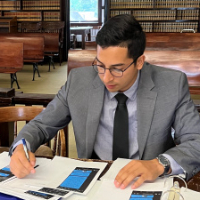Damascus Landlord-Tenant Lawyer, Oregon
Caleb N. Dorrance
✓ VERIFIEDLandlord-Tenant, Commercial Leasing, Slip & Fall Accident, Bed Bug
Alex Hostetler graduated "cum laude" from Lewis & Clark Law School in 2018. Alex decided to take the plunge into law school in order to work to i... (more)
Joseph L. Haley
✓ VERIFIEDAccident & Injury, Motor Vehicle, Landlord-Tenant
Joseph L. Haley, Attorney at Law Associate Attorney Joseph (“Joe”) Haley was born in Marietta, Ga. Joseph’s entire adult working life was devote... (more)
Aaron Jay Besen
Landlord-Tenant, Electronic Commerce, Life & Health, Personal Injury
Status: In Good Standing Licensed: 39 Years
Aaron J Potter
Landlord-Tenant, Contract, Car Accident, Accident & Injury
Status: In Good Standing Licensed: 26 Years
Adam S. Gamboa
Landlord-Tenant, Employment Discrimination, Civil Rights, Personal Injury, Car Accident
Status: In Good Standing Licensed: 19 Years
Adam Nathaniel Mentzer
Real Estate, Landlord-Tenant, Litigation, Administrative Law
Status: In Good Standing Licensed: 7 Years
Adam Nathaniel Mentzer
Landlord-Tenant, Housing & Construction Defects
Status: In Good Standing Licensed: 7 Years
Adam Jones
Landlord-Tenant, Litigation, Insurance, Business
Status: In Good Standing Licensed: 16 Years



